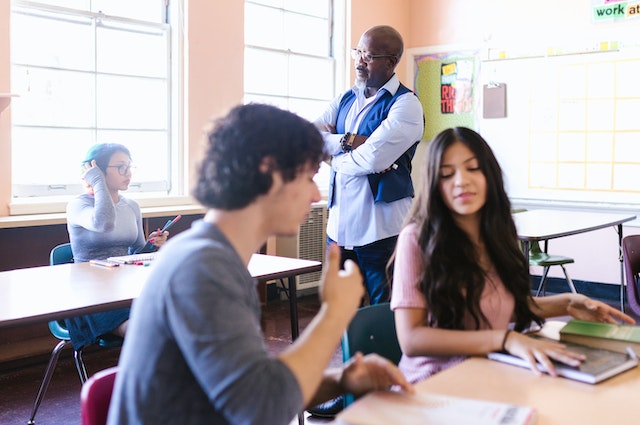Making the most out of your university experience is paramount to its success and can become one of the greatest adventures of your life.
Push yourself outside your comfort zone – join societies, learn a new language or volunteer abroad! Your efforts will pay off once you enter the workforce!
Get to know your course

As it can be easy to become bogged down with studying, university can easily become overwhelming and stressful. Although you might spend most of your time with those from your own course, try reaching out as often as possible to those from different courses; doing this may open up opportunities you would otherwise not consider or introduce you to new potential career paths outside your area of study.
Curriculum documents offer you a snapshot of what to expect during a course and how best to prepare. They should contain admission criteria (what you must meet to start it) as well as estimated contact hours – the time you should spend attending lectures, seminars, tutorials or practicals.
As part of their research process, many students take advantage of open days to gain as much information about their courses as possible before beginning them. You may receive copies of reading lists which can help determine whether a subject suits you; additionally it’s wise to inquire as to employment rates of graduates of that course and/or ask what their skills and experiences have yielded in ten or twenty years time so you have an accurate representation of the benefits gained from attending them.
Learning from your lecturers will be an integral part of the educational experience and can make a dramatic difference to how well you perform. Be sure to introduce yourself, particularly at the start of each term; this will allow them to remember who you are as well as providing an opportunity for you to voice any concerns that you might have regarding the course.
Consider inquiring into your lecturers’ teaching styles as well. Some instructors use interactive methods and facilitate discussions while others will employ more of a lecture-style approach.
Get to know your accommodation
Quality student housing can make or break your university or college experience, with lasting effects on costs, living arrangements and free-time activities. Therefore, it is crucial that you become informed of all available options so as to select the most suitable accommodation as soon as possible – this may help prevent disappointment later on!
Universities provide a variety of accommodation on campus, ranging from purpose-built halls to shared apartments. Many have Facebook groups set up in advance for each accommodation option that serve as an effective way of meeting fellow students before moving in; typically this group comprises first year, second, third, or even fourth year students. Some students also prefer renting private houses or flats and sharing with friends; this option may be more popular among second and third year students but could still work for first years who feel uncomfortable living with strangers.
Wherever you choose to live, it is essential that it meets all of your requirements – for instance, are you close or far from campus? Is convenience key, for instance general stores nearby or medical clinic? How far are hangout spots, pubs or restaurants from you? Having all these things nearby will make exploring your new neighborhood easier!
When choosing a shared apartment, take time to get to know your future roommates as much as possible. Moving in with strangers is always daunting, so take some extra steps in researching them thoroughly. If possible, live among people with similar interests who share similar views about how your flat should run.
Before signing your lease agreement, it’s also crucial that you thoroughly inspect the condition of your new home. This gives you an opportunity to evaluate how clean it is, how equipped its kitchen is and if there are any plumbing or heating issues which could come back later – no one wants a dripping shower or an overflowing toilet during their studies!
Get to know your city
Students tend to live in new cities or countries while studying, which makes getting to know where you live an incredible opportunity for discovering more of the world around them. You could take an organised tour by your uni or simply talk with locals for tips and insight into where they’re living.
In your first few weeks at university, now is an excellent time to try some of these activities out and make new friends and settle into your routines. Also take advantage of all university resources such as UBC VPN, libraries, and lecture recordings/lab practicals as this will ensure you make the most of your degree experience.
As you might be amazed to learn, universities offer students a vast array of activities ranging from fun and frivolous to serious and meaningful ones. Cheering on sports teams or joining choir are all fantastic opportunities to become engaged with your university community and meet many wonderful people.
As part of your academic experience, it’s also advisable to talk to your tutors outside of lectures and seminars about any topics which interest you outside of classes and seminars. Most tutors are happy to offer advice or suggest books; conversely they can also provide safe space where you can discuss any concerns that you might be experiencing as a student.
Universities today often provide departments dedicated to helping their students prepare for employment by offering internships and work experience placements throughout their studies, which provide essential career-related experience that will set you up for future success and boost employability after graduation. Taking advantage of such opportunities to develop valuable career-specific skills will give your employability an extra boost after you graduate.
Get to know yourself

Acknowledging who we really are can be difficult, especially when other people expect it of us. Yet this discovery process is an integral component of making the most out of university experience, which means letting go of unhealthy expectations and accepting ourselves exactly as we are; additionally it means being aware of any parts that need improvement and taking steps towards change.
Individuals often struggle to distinguish who they are from the influence of their family. Understanding and accepting this influence is crucial in developing an understanding of yourself as an individual as well as learning how to set healthy boundaries within families. If you were raised in an unhealthy environment, however, breaking free can be challenging as you strive to become your own individual person.
One effective way of understanding oneself is through reflecting upon their values and how they react in different situations. You could ask yourself questions like “What are my core priorities and qualities that I admire in others?.”
As part of self-care, it’s essential that we take time out for ourselves so we can get acquainted with ourselves better. You can do this through activities you find enjoyable like exercising, enjoying a delicious meal or reading a good book. Indulging in new experiences by joining societies or sports teams could help reveal passions and interests which could shape future career decisions.
Your time at university provides an ideal opportunity to discover new hobbies and interests, like joining a choir or dancing. Who knows–you may discover you’re great at something you never knew you would! Not forgetting studies as this is at the core of university experience so make sure to keep up with work by attending lectures and seminars regularly!




